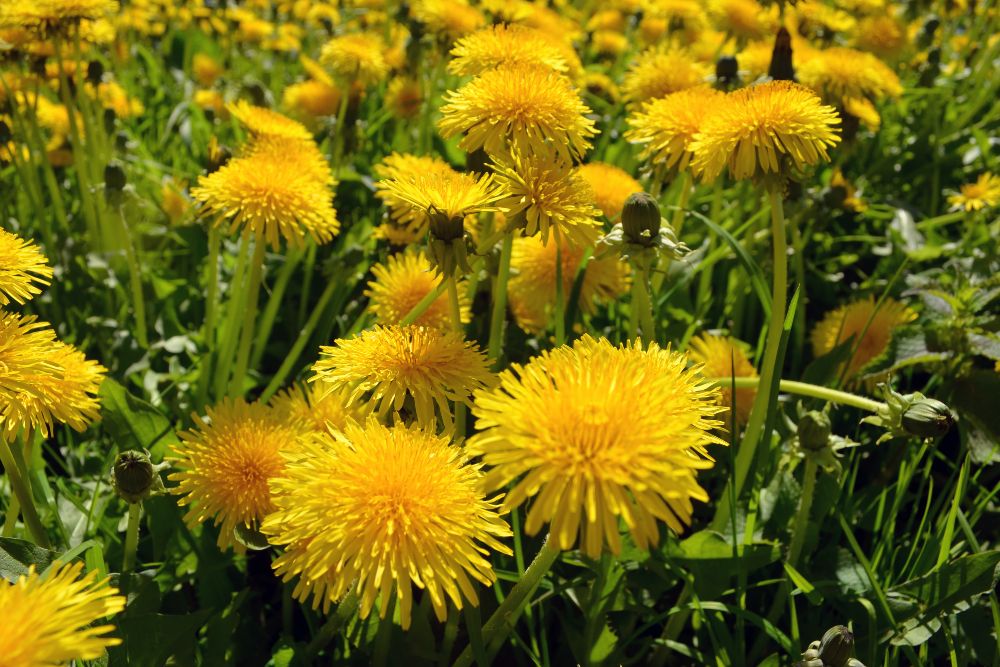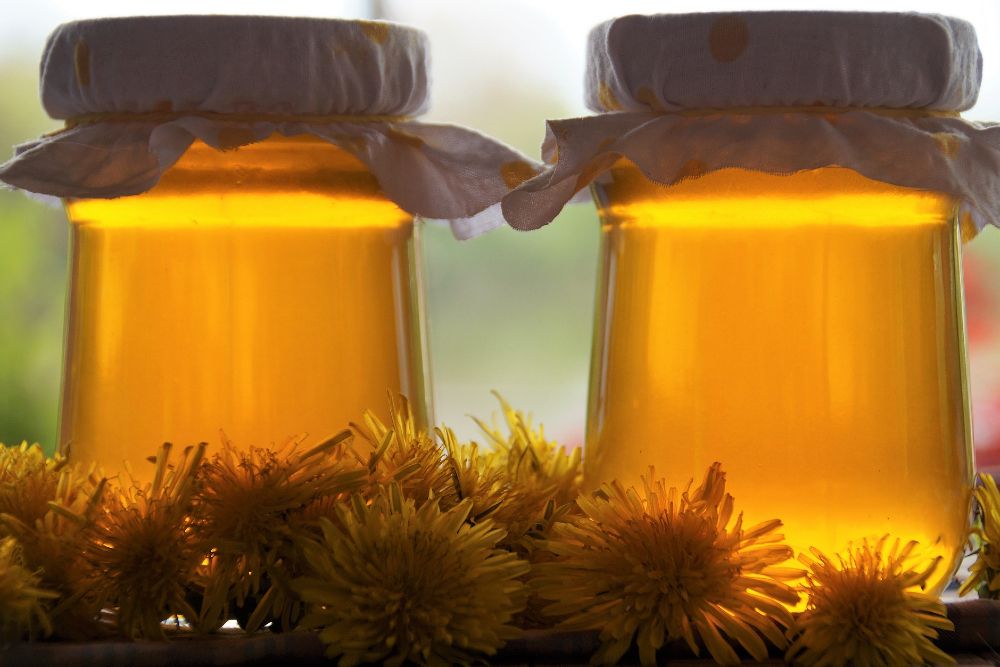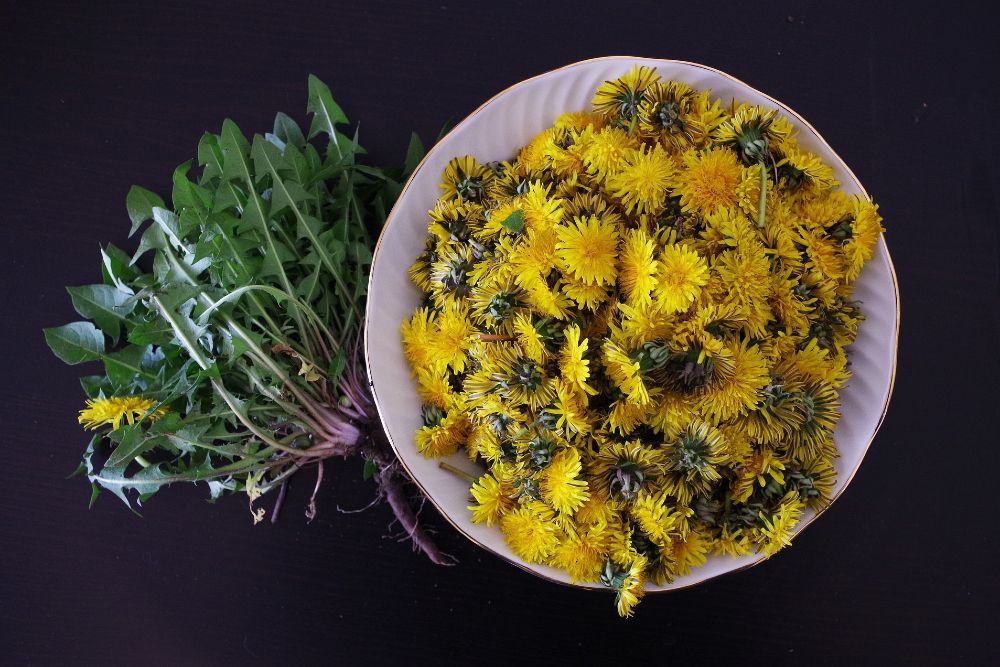The dandelions are the masters of survival as they can grow in different soil conditions and thrive in zones 3 to 10. All parts of dandelions, except their stems, are edible and extremely rich in vitamins! If you consider dandelions as uninvited guests in your garden, these nine amazing benefits might change your perception forever.
Dandelion Leaves Are Full of Nutrition
Image Credits: Viridi Green via Unsplash
The leaves of dandelions are rich in vitamins C, B, and E and contain iron, calcium, magnesium, lecithin, and potassium. Besides, they have 25 times the vitamin A of tomato juice! Use the young greens of dandelions in salads or as a dressing in mashed and baked potatoes. You can even cook them just like you cook spinach.
Dandelions Have Antioxidants
Image Credits: Markus Spiske via Pexels
Want to make your pancakes healthier? Add ½ to ¾ cups of dandelion flowers! They taste like apricots and are a great source of antioxidants with vitamins A and B12. You can also use flower petals to make your salads more colorful. Flowers can be plucked fresh or dried first and then plucked. Just pick the petals only and avoid the green base of the flower, as it tastes a little bitter.
Note: While picking wild dandelions, ensure that the area is not treated with pesticides or other chemicals that might be toxic if consumed.
Make Vegan Honey With Dandelions
Image Credits: ivabalk via Pixabay
If you need a vegan alternative to your regular honey, use dandelions! The dandelion honey has almost the same flavor as regular honey and is possibly more nutritious. You need simple ingredients like fresh dandelion flower petals, fresh lemon or orange zest, raw sugar, vanilla extract, and water, and you can make this vegan honey at home.
Dandelion Leaves Stimulate Digestion
Image Credits: Andrea via Pixabay
Dandelion leaves have a delicate bitter taste which can stimulate digestion by increasing saliva, which helps break down the carbohydrates and starch in your food. It also vitalizes enzymes in the stomach which are responsible for breaking down proteins and complex carbohydrates.
The dandelion leaves also enhance bile juice secretion, which aids in digesting fats and stimulates bowel movements.
Dandelion Roots Can Substitute for Coffee
Image credits: Lina Kivaka via Pexels
If you feel like trying a non-caffeine coffee substitute, try dried dandelion roots. The Maine Organic Farmer & Gardener Association found that dandelions could be amongst the most expensive grocery items! But if you have them in your garden, you can make your caffeine-free coffee at no cost.
Start by roasting the dandelion roots until they turn dark brown from inside and out. Then, ground them into a powder and use it to make your caffeine-free coffee.
Dandelion Roots Keep You Healthy
Image Credits: Shirley Hirst via Pixabay
Dandelions have long taproots that grow deep inside the earth and bring wonderful nutrients into the plant. The roots of dandelions are edible and rich in micronutrients like calcium, potassium, manganese, carotenes, iron, and inulin.
Many herbalists use dandelion roots to support liver health, specifically for congested liver, bile thick, gallstone formation, and lack of bile secretion. The dandelion roots are also shown to relieve poor liver health which is why dandelion is often considered an alternative herb.
Doctors are still studying dandelions! The Dandelion Root Project is one initiative by the University of Windsor in Canada to see if the plant can help patients with cancer.
Well, these plants are not just pesky weeds, are they?
Dandelion Spring Tonic
Image Credits: congerdesign via Pixabay
As the outer world rejuvenates in spring, nutrient-packed greens come to life. These plants are often used to make spring tonics, a seasonal cleanse for the body. They're generally consumed in early spring to provide nourishment and get rid of winter toxins.
The digestive properties of dandelion leaves and the cooling properties of dandelion roots make this plant perfect for being used as a spring tonic. Start adding dandelion leaves to your salads or make their soup in early spring to energize your bodies after nutrient-poor winters. You can also add 2 tablespoons of chopped dandelion root per pint of water to make a spring tonic.
Dandelions Are Useful for Your Garden
Image Credits: Dirk (Beeki®) Schumacher vis Pixabay
The taproots of dandelions are beneficial not only for the dandelion plant but also for the soil ecosystem of your garden. These deep roots break up the densely packed soil allowing more water and air to flow. They also help bring nutrients to the soil's surface, which could benefit shallow-rooted plants like tomatoes. In addition, the nutrient-rich leaves of the dandelions could be good compost.
Dandelions Attract Pollinators
Image Credits: Benjamin Grenier via Unsplash
Dandelions are an early-season food source for pollinators like bees, butterflies, and ladybugs. Many birds also feed on dandelion flowers, buds, and seeds. Hummingbirds use dandelion seeds in the construction of their nests.
The dandelions might not be able to provide the most nutritious pollen to pollinators. But they can attract pollinators to the gardens in the early seasons when there are scanty flowering plants.
More Power to Dandelions!
Dandelions are healthy and not just for us but for gardens too. They improve digestion, provide antioxidants, and include medicinal properties (still in research). They attract pollinators and enhance the soil ecosystem in the gardens. There’s a lot more about dandelions to discover!
Have you tried any dandelion recipes yet? Share your experience with dandelions in the comments below.






